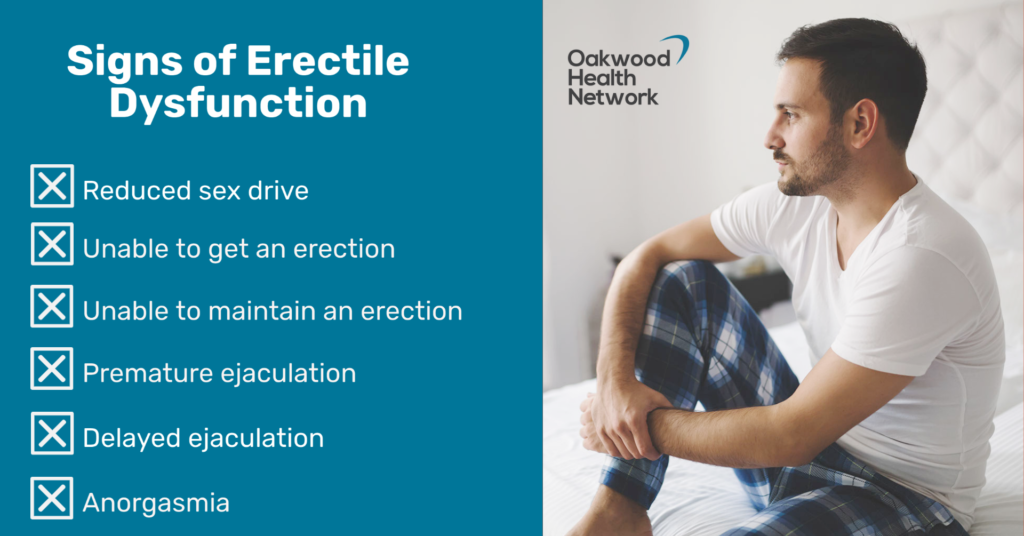Navigating Erectile Health: Tips for a Fulfilling Sex Life

Understanding the Nature of Erectile Dysfunction
Erectile dysfunction, commonly referred to as ED, is a common sexual problem in men, characterized by the consistent inability to attain or maintain an erect penis adequate for sexual intercourse. It is a complex issue with a myriad of contributing factors including physical and psychological aspects. The term “erectile dysfunction” is not a singular entity, but rather, it encapsulates a variety of disorders impacting the sexual health of an individual. It’s vital to comprehend that experiencing erectile predicaments occasionally isn’t necessarily a cause for concern. However, when the issues persist, it may indicate a deeper underlying health problem demanding medical attention.
Delving deeper into the physical layers of the issue, an erection is a complex process that involves the harmony of the brain, hormones, emotions, nerves, muscles, and blood vessels. Any discordance in these contributing factors can result in erectile dysfunction. From a physiological standpoint, an erection begins in the brain with sexual excitement from various sources such as touch, visual stimuli, or even mental images. Your brain sends signals to your nerves which in turn increases the blood flow to the penis. The blood fills two chambers known as the corpora cavernosa, resulting in an erection. When the intricate interplay of these elements is compromised, erectile problems emerge. Therefore, understanding the nature of erectile dysfunction is fundamental in seeking the right treatment and managing the condition effectively.
Why Erectile Health Matters

Erectile health extends far beyond the confines of sexual well-being, marrying into a man’s overall physical and psychological health. Maintaining good erectile health is an indicator of good cardiovascular health. The health of the blood vessels in the penis is a mirror image of those in the heart. So, an onset of erectile dysfunction might be an early sign of a cardiovascular issue, making it an important aspect that should not be overlooked.
With proper diagnosis, erectile dysfunction can act as an early warning sign for more serious health implications like diabetes, heart diseases, or high blood pressure. Thus, paying attention to erectile health can lead to the early detection of these ailments, providing a precious window for implementing lifestyle modifications or starting medications that can dramatically improve an individual’s health outcomes. Additionally, erectile health is integral to one’s mental state as it plays a significant role in male identity and psychological well-being. If not addressed, it can potentially lead to stress, low self-esteem, and relationship issues. Therefore, it’s clear that erectile health matters far beyond the bedroom, affecting various aspects of a man’s life.
Recognizing the Symptoms of Erectile Dysfunction

Erectile dysfunction is rather common, affecting as many as 30 million men in the United States, according to the National Institute of Diabetes and Digestive and Kidney Diseases. It is characterized by the inability to achieve or maintain an erection sufficient for satisfactory sexual performance. The signs of this condition often present themselves as persistent and recurrent situations, usually encompassing trouble getting an erection, difficulty maintaining an erection, and reduced sexual desire. While an occasional erectile problem isn’t necessarily a cause for concern, if erectile dysfunction is an ongoing issue, it can cause stress, affect self-confidence and contribute to relationship problems. Prolonged erectile issues might also suggest an underlying health condition requiring treatment.
On a more specific note, symptoms might also be noticed during masturbation or nocturnal emissions, and can occur irrespective of the type of sexual activity the person is engaged in. Other related symptoms can include premature, delayed, or inhibited ejaculation, as well as anorgasmia which is a condition that prevents a man from achieving orgasm. The presentation of these issues can be indicative of both physical and psychological factors. Therefore, an all-inclusive study of the issue is essential in diagnosing and treating erectile dysfunction effectively.
It is crucial to note, this condition does not define you or your value. Reaching out to a healthcare provider can open up discussion and help initiate suitable intervention methods that can significantly improve one’s quality of life.
The Psychological Aspects of Erectile Dysfunction
When talking about erectile dysfunction (ED), it is crucial to highlight that, while often defined as a physical manifestation, psychological elements play a significant part in this condition. Mental health matters such as stress, anxiety, depression, low self-esteem, and fear of sexual failure can contribute significantly to ED. Studies have demonstrated that up to 20% of ED cases are caused primarily by psychological factors. Just as the body needs to be in good health for optimal erectile function, so too does the mind need to be in a balanced, low-stress state.
Delving further into this matter, various specific psychological conditions have been linked to ED. For example, performance anxiety is a common issue. Men who worry excessively about their sexual performance may find themselves trapped in a vicious cycle where their concerns lead to ED, which then exacerbates their anxiety. Depression is another critical psychological aspect of ED. Research shows men with depression are three times more likely to experience ED than those without. Understanding the psychological aspects of ED is an essential step towards finding a comprehensive and effective treatment approach for this complex and multifaceted condition.
Table summarizing scientific articles about Psychological Aspects of erectile dysfunction
| Title | Authors | Year | Journal | Summary |
|---|---|---|---|---|
| Psychological Aspects of Erectile Dysfunction Deserve More Attention, Health Scientists Say1 | Mark S. Allen, Alex M. Wood, and David Sheffield | 2023 | Current Directions in Psychological Science | The article discusses how personality traits and mental health problems are among the factors linked to erectile dysfunction (ED), a condition that affects up to 80% of men over the age of 60. It also calls for research to better integrate biological and psychological components of and treatments for ED. |
| Psychological Aspects of Erectile Dysfunction2 | Michael A. Perelman and Daniel N. Watter | 2016 | Contemporary Treatment of Erectile Dysfunction | The chapter focuses on the psychological factors that often interfere with the ability to achieve and/or maintain penile erection suitable for a satisfactory sexual experience for both the man and his partner. It also provides some case examples and recommendations for treatment. |
| Psychogenic Erectile Dysfunction: Causes and Treatment3 | Verywell Health Team | 2021 | Verywell Health Website | The article explains what psychogenic erectile dysfunction is, how it differs from organic erectile dysfunction, what are some common causes, how it can be diagnosed, and what are some effective treatments. |
| Erectile dysfunction often has a psychological basis4 | The Conversation Staff Writers | 2016 | The Conversation Website | The article explores the link between psychological factors and ED, such as stress, anxiety, depression, guilt, low self-esteem, or relationship concerns. It also suggests some ways to cope with ED and when to seek professional help. |
The Physical Causes of Erectile Dysfunction
Erectile dysfunction can be triggered by a range of physical issues. The disorder is often linked to the normal process of aging and certain medical conditions. Hypertension, heart diseases, and diabetes are some of the conditions linked to the development of erectile dysfunction. The interplay of hormones, nerves, muscles, and blood vessels can also be a causal factor. These factors play a pivotal role in maintaining an erection during sexual interactions. A disruption in any of these factors might lead to erectile dysfunction.
For instance, nerve disorders such as Parkinson’s disease and multiple sclerosis can disrupt the balance, leading to erectile dysfunction. Prostate cancer treatment such as radiology or surgery could also potentially damage nerves and tissues around the male genitalia, causing erectile dysfunction. Even conditions that affect blood flow, like atherosclerosis, can influence erectile health because an adequate blood flow is essential for maintaining an erection. This highlights the complex intertwining between numerous physical conditions and the onset of erectile dysfunction.
The Role of Lifestyle Choices in Erectile Health
Research has shown that lifestyle choices can significantly impact a person’s erectile health. Smoking, for instance, damages blood vessels, which can impede blood flow to the penis and lead to erectile issues. Similarly, alcohol and drug abuse can also lead to similar outcomes. Studies conducted by the American Heart Association and the National Institute on Alcohol Abuse and Alcoholism affirm that excessive consumption of alcohol or use of illegal drugs can interfere with the normal hormonal balance, nerve functions, and blood circulation necessary for a healthy erectile function.

Furthermore, a sedentary lifestyle, marked by little to no exercise, can contribute to the occurrence of erectile dysfunction. The Harvard Health Publishing reported that a mere 30 minutes of walking a day was linked with a 41% drop in the risk of erectile dysfunction. Beyond physical activity, dietary choices too play a pivotal role. Overconsumption of processed foods and high-fat products can lead to health conditions like heart disease and diabetes, which are directly linked to erectile dysfunction. A diet rich in fruits, vegetables, lean proteins, and whole grains is foundational to maintaining a healthy vascular system, imperative for achieving and maintaining an erection.
Medical Conditions that Impact Erectile Health
A myriad of underlying medical conditions can severely impact the health of erections and lead to erectile dysfunction in men. One primary medical culprit is cardiovascular disease. This condition affects the blood vessels, which can ultimately limit the blood flow to the penis, making it challenging to achieve or maintain an erection. Furthermore, hypertension – or high blood pressure – can also interfere with this essential blood flow. Diabetes, yet another systemic condition, can potentially cause nerve damage that disrupts signals between the brain and the penis, thus obstructing erectile function.
Certain hormonal issues can also contribute to this worrisome condition. Low testosterone, hyperthyroidism, hypothyroidism, and other hormone imbalances can leave a significant impact on erectile health. On a neurogenic level, disorders such as Parkinson’s disease, stroke, and multiple sclerosis can cause issues with the nervous system, which is responsible for triggering erections. Lastly, renal conditions, including chronic kidney disease and renal failure, can limit the amount of blood that flows into the penis and consequently hinder erection health. Hence, individuals with these conditions must pay particular attention to managing their symptoms effectively and meet a healthcare provider or sexual health expert regularly to oversee their situation.
How Diet and Exercise Impact Erectile Health
Undeniably, the role of diet and exercise in maintaining sexual health cannot be overstated. A healthy diet, rich in whole grains, lean proteins, fruits, vegetables and low-fat dairy provides essential nutrients for optimal bodily function, including the circulatory system which plays a key role in erectile health. Substances like sodium, saturated fats, and refined sugars, which are profoundly in unhealthy processed foods, have been linked to heart disease and clogged arteries—conditions that impede blood flow and may consequently result in Erectile Dysfunction (ED), further underscoring the import of a healthy diet.
Exercise is equally pivotal to erectile health. Regular physical activity alone can considerably lower the likelihood of ED. This can be attributed to the promotion of healthy blood flow, weight management, and stress reduction. Physical exercises focusing on the pelvic area can bolster the strength of pelvic muscles and improve blood flow to the area, thereby aiding in achieving and maintaining an erection. A study published in The American Journal of Cardiology validates this claim. A sample group of men with ED who engaged in regular physical activity displayed significant improvements in erectile function, cementing the effectiveness of exercise as a preventive and management measure against ED.
The Importance of Regular Health Check-ups

Health check-ups play a pivotal role in the early detection and management of erectile dysfunction. Undergoing regular screenings can help identify underlying conditions that could be affecting sexual performance. By monitoring blood pressure, heart health, glucose levels, and hormone balance, physicians can catch potential triggers of erectile dysfunction before the individual experiences any symptoms. This level of preventative care allows for early intervention, minimizing the potential impacts on the individual’s quality of life.
These check-ups also provide an invaluable opportunity to discuss sexual health with a medical professional. Many individuals feel uncomfortable discussing erectile issues, thus often neglect to seek help until the condition has significantly progressed. Through regular health assessments, patients are encouraged to engage in an ongoing dialogue about their sexual health, facilitating early detection and treatment. It’s good to remember that erectile health is a barometer of overall health. Any deviations in erectile health could be hinting towards more serious underlying health concerns, which emphasizes the need for regular check-ups.
Treatment Options for Erectile Dysfunction
Erectile dysfunction, often symbolized by an inability to maintain or attain an erection, is a medical condition that can vastly impact one’s quality of life. The good news is that a wide range of treatments are available to manage this issue, offering help and hope to those affected. Among the most commonly employed methods to treat erectile dysfunction are medications, such as PDE5 inhibitors (Sildenafil and Tadalafil being the most known), which help increase blood flow to the penis, a critical element in achieving an erection. While these medications are successful in managing symptoms for a majority of patients, it is crucial to remember that they may not be suitable for everyone, particularly for those with certain health conditions or on specific medications.
For a number of patients, alternative treatments including vacuum erection devices or penile implants may prove more beneficial. Vacuum erection devices work by drawing blood into the penis, thereby inducing an erection. Penile implants, on the other hand, involve surgically placing devices into the two sides of the penis, allowing manual control over erections. Both of these methods offer a greater sense of control and are generally well-tolerated. However, it’s important to discuss all available options with a healthcare provider to ascertain the most appropriate treatment path based on an individual’s unique medical profile and lifestyle considerations.
Medication and Surgical Interventions for Erectile Health
When it comes to medication for improving erectile health, the landscape is diverse and contains several effective options. The front runners in this realm are no doubt PDE-5 inhibitors including the well-known medication, Viagra (Sildenafil) along with others such as Levitra (Vardenafil) and Cialis (Tadalafil). These medications function by augmenting the body’s natural process which leads to an erection during sexual stimulation. This results in improved blood flow to the penis, facilitating a stronger and longer-lasting erection. Studies have shown that these medications have proven successful in managing erectile dysfunction (ED) for a significant number of men.
On the other hand, when non-invasive treatments are unsuccessful, surgical interventions may be considered. Penile implants, also known as penile prostheses, are devices implanted into the penis to allow men with erectile dysfunction to have an erection. They are typically recommended after other treatments for ED fail. The two main types of penile implants are malleable and inflatable. Both types have their advantages and disadvantages, so the choice often depends on the individual’s specific circumstances and their doctor’s expertise. While these interventions might seem daunting, men who undergo successful implant procedures often report high satisfaction rates, underlining the effectiveness of this approach.
The Role of Therapy in Managing Erectile Dysfunction

Therapy plays a significant role in the management of erectile dysfunction (ED), providing an avenue for men to understand and overcome this sensitive condition. Cognitive-behavioral therapy (CBT) is one such therapeutic approach. This form of therapy can help men alter unrealistic or negative thinking patterns, allowing them to improve their sexual experience and potentially alleviate ED symptoms. It works by modifying thought processes that may be causing or contributing to ED, enabling men to regain control over their sexual performance. Research supports the efficacy of CBT, with a study published in the Journal of Sexual Medicine showing that 58% of men undergoing CBT sessions reported improvements in erectile function.
Psychosexual therapy is another popular avenue; it revolves around understanding and addressing the psychological factors that may contribute to ED. This could include stress, anxiety, or relationship issues. Working with a trained professional in a secure environment gives men the opportunity to express and explore these potentially sensitive triggers. Through open conversation and guided discovery, men can identify the root causes of their ED while also learning coping mechanisms to manage symptoms. A 2017 review published in Sexual Medicine Reviews found that 63% of individuals who underwent psychosexual therapy saw improvements in their erectile health. Therapy, whether cognitive-behavioral or psychosexual, empowers men with the knowledge and strategies to address ED, contributing to improved sexual function and overall well-being.
Natural Remedies and Supplements for Erectile Health

In the realm of holistic health, there are various natural remedies that could potentially improve erectile health. These solutions, rooted deeply in traditional medicine, involve herbs and supplements known for their potency in enhancing blood circulation and fostering hormonal balance. Panax ginseng, often termed the ‘herbal Viagra’, is famous for its strong research-backed evidence. A review published in the British Journal of Clinical Pharmacology noted consistent and effective improvements in erectile function with the usage of Panax ginseng. Furthermore, a secondary herb, Rhodiola Rosea, can enhance energy and reduce fatigue, which could indirectly assist in improving erectile dysfunction.
However, it is important to understand that using these supplements should not replace a comprehensive approach to treating erectile dysfunction. The impact of implementing a healthy diet, regular exercise, adequate sleep, and a balanced lifestyle cannot be undermined. Studies have repeatedly shown positive correlation between cardiovascular health and erectile function. A report by Harvard Medical School emphasizes the crucial role of heart-friendly diets, regular physical activity, and maintaining a healthy body weight in combating erectile dysfunction. In essence, while natural supplements can support treatment, maintaining a healthy lifestyle remains pivotal in promoting overall erectile health.
Maintaining a Healthy Relationship Despite Erectile Dysfunction
The challenges associated with erectile dysfunction (ED) can place significant strain on relationships. However, it’s crucial to note that a strong, intimate relationship can be maintained even amidst the struggles of ED. It often involves a two-pronged approach: clear communication and mutual understanding. Communication is important as it allows both partners to express their feelings and concerns openly, promoting empathy and a shared approach to problem-solving. It also empowers the individual affected by ED to convey his experiences and feelings – which may often be complex and multifaceted – to his partner.
Likewise, understanding plays a significant role in keeping a relationship healthy despite challenges like ED. If the partner comprehends the nature of erectile dysfunction, recognizing it as a medical condition rather than a personal failing, it can alleviate feelings of blame or inadequacy. It’s important to arm oneself with accurate knowledge about ED, its causes, and its treatments. This information can be sourced from trustworthy health websites, medical professionals, or through informational resources from health organizations. By maintaining open lines of communication and fostering mutual understanding, relationships can effectively weather the trials brought about by erectile dysfunction.
Creating a Personalized Plan for Improved Erectile Health
Just like any other health condition, improving erectile health requires a conscious and planned approach. A personalized plan for improved erectile health often begins with understanding the root cause of the problem. It could be psychological, physical, or even a side effect of certain medications. Depending on the underlying cause, the plan may involve therapeutic strategies, medication, lifestyle changes, or all of these combined. For instance, if the cause is rooted in anxiety, therapy sessions are an integral part of the plan. If obesity is contributing to the situation, a healthy diet and regular exercise become essential components of the recovery strategy. It is crucial to develop this plan in close consultation with a healthcare provider, as one-size-fits-all remedies often fall short in achieving the desired result.
Incorporating a personalized plan in one’s routine might seem intimidating initially, but it becomes easier with patience and consistency. The emphasis should always be on overall health and well-being, rather than desperate attempts to fix the erectile dysfunction. Each plan will differ based on individual circumstances and medical conditions. This might entail specific dietary guidelines, prescribed exercises, recommended sleep patterns, stress reduction techniques, medication schedule, or therapy sessions. One might need to go for regular health check-ups to monitor progress and make necessary adjustments. It is important to remember that a personalized approach is essential to achieving improved erectile health.
What is erectile dysfunction?
Erectile dysfunction is a sexual health condition where a man is unable to maintain an erection adequate for sexual intercourse. It can be a result of various physical or psychological factors.
Why is maintaining good erectile health important?
Good erectile health is vital not just for sexual activity but also for overall health and well-being. It is often a reflection of a man’s general health condition and certain issues with erectile health can also signal other underlying health problems.
What are the symptoms of erectile dysfunction?
The symptoms include persistent troubles in getting or keeping an erection, reduced sexual desire, and other sexual problems like premature or delayed ejaculation.
How does mental health impact erectile health?
Psychological factors such as stress, anxiety, depression, and relationship problems can all contribute to erectile dysfunction. It’s important to address these issues as they play a significant role in sexual health.
What are some lifestyle factors that can affect erectile health?
Factors such as smoking, excessive alcohol consumption, lack of physical activity, and poor diet can negatively impact erectile health.
Can certain medical conditions result in erectile dysfunction?
Yes, several medical conditions like heart disease, diabetes, hormonal imbalances, neurological disorders, and certain medications can lead to erectile dysfunction.
How can diet and exercise influence erectile health?
A balanced diet and regular exercise help maintain a healthy weight and good cardiovascular health, which are crucial for good erectile health.
What are the current treatment options for erectile dysfunction?
Treatment options include medications, surgeries, psychological counseling, and lifestyle modifications. The choice of treatment depends on the underlying cause.
Are there natural remedies for improving erectile health?
Yes, certain herbs and supplements are claimed to help improve erectile health. However, it’s important to consult with a healthcare provider before starting any new supplement regimen.
How can one maintain a healthy relationship despite dealing with erectile dysfunction?
Open communication, understanding, patience, and professional help through therapy can help maintain a healthy relationship despite the challenges of erectile dysfunction.
How does one create a personalized plan for improved erectile health?
A personalized plan should involve a combination of medical treatment, lifestyle changes, psychological counseling, and regular check-ups. It should be developed with the help of a healthcare provider, considering the individual’s overall health, the severity of symptoms, and personal preferences.







